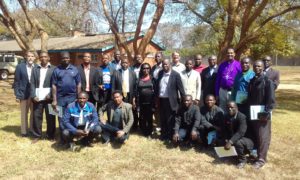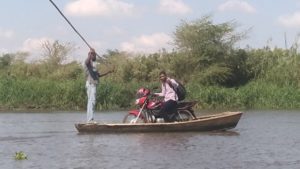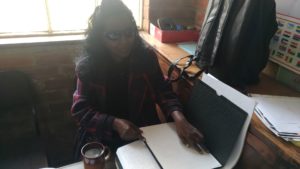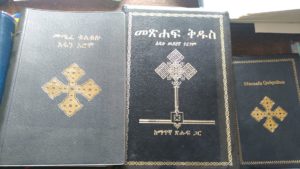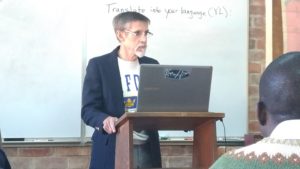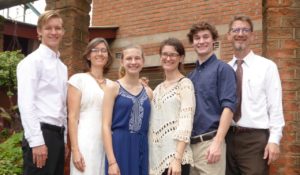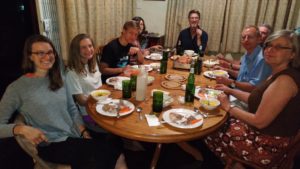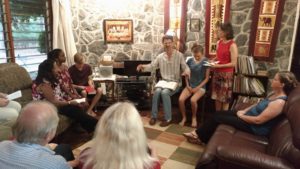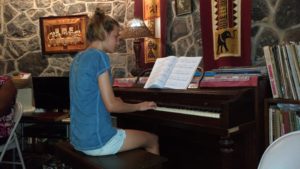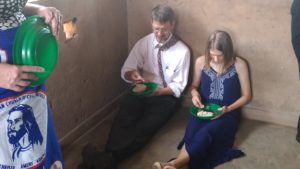Visit Rwanda

I’m a nervous traveler. You only need ask my wife, Sue. She will roll with the punches of long lines, negotiating at the airline counter with overweight luggage and messed up children’s tickets or slow immigration/customs officials. I’ll insist on being at the airport at three least hours ahead of time even if it means we end up spending two hours and fifty minutes of it sitting in the departure lounge twiddling our thumbs. You would think after 27 years of living overseas I would be more relaxed. Sadly, experience has only left me worrying more about all the things I know potentially can go wrong in travel—particularly on the African continent side.
Take for example my first trip to Rwanda for One Africa Team (OAT) mission exploration almost a year ago. The whole airport experience was carefully choreographed and went splendidly. As my associate and I walked out of the Kigali, Rwanda airport terminal at around 5:00 a.m. There was even someone there Johnny-on-the-spot to meet us holding up a sign with my first name on it— “Philip.” We hopped into a waiting taxi and were wended off to a nice hotel in a very posh district of Kigali. We checked into our rooms, showered, and even took naps since we had both been up most of the previous night. By around 11:00 a.m., however, I began to wonder where the Rwandan pastor contact was I was to meet up with who had arraigned all of this. It was around noon I received a frantic call from him through the hotel front desk. He was asking why we were at this hotel!? I still don’t know how he located us in the multitude of hotels in Rwanda’s capital city of Kigali with a population of almost 750,000 people. He had been at the Kigali airport since around 5:30 a.m. and we had not shown up. Now it was revealed to me by the hotel desk that the hotel staff had realized they had picked up the wrong “Philip.” They had made another trip to the airport to pick him up. Sadly, the staff had not bothered to mention it to this “Philip” until I asked what happened after receiving the pastor’s phone call. 180,000 RwF or $214 lighter, we checked out the hotel after a half day stay. We had finally met up with our Rwandan pastor contact and were finally on our way, a half a day behind an already tight schedule.
Those thoughts and others crossed my anxious mind as I sat my usual two hours and fifty minutes in the departure lounge of the Lusaka Airport this past August waiting for our Rwandair Express flight to arrive. This would now be my second trip to Rwanda to visit Lutheran groups. Playing on one of the airport’s waiting room TVs was an English Premiere League football game (“soccer” to most Americans). This is some of the most topflight professional sport you can watch this side of the world. It is big time stuff, bigger and far more popular than American “football” (the misnamed sport where they carry the ball and only rarely kick it). Most any African male, be they from Angola, Rwanda or Zambia, know well the English Premiere League standings as good as or better than any American male can cite the American NFL standings. The teams playing this game were two of the top-flight teams in the top tier English Premiere League, Arsenal and Manchester City. It was a good diversion.

Then something caught my eye in the game. I asked Pastor Simweleeba, an LCCA Zambian pastor accompanying me this time on my trip to Rwanda, if he saw it. It was a pink armband all the Arsenal players were wearing. I thought my eyes were deceiving me but it looked like the words “Visit Rwanda” were on the armbands. A couple of slow-motion replays later it was really there and I was seeing what I thought I was seeing. “Visit Rwanda,” wow! Rwanda is trying to become an international tourist travel location and here I am at the airport flying off to Rwanda! Some of my travel tension immediately eased.
To put this into perspective let me again tell you a little about my first trip a year earlier to Rwanda. One of the big impressions of Rwanda of a year ago were all the police out and about. Obviously, you can see police in every African country but the Rwandan police looked particularly serious and there were a lot of them. These guys were carrying the newest and state of the art automatic weapons while walking around their regular street beats. In Zambia most all police carry automatic weapons as well, very dilapidated and antique AK-47s. In Rwanda it’s only the lowly traffic cops stuck carrying AKs to police traffic stops. In Zambia our traffic police use orange cones to do the same thing. Not surprisingly Rwandan AKs, even though they are not orange, do seem to catch your eyes better than the orange traffic cones Zambian traffic officers use.
It is less than 25 years ago, 1994 to be specific, that Rwanda suffered a terrible genocide throughout the country. A strong police presence is a remnant of that bitter piece of Rwandan history. On a positive note the Rwandan government is doing all in its power to mitigate the country’s terrible tragedy and try to bring back a level of normalcy to its citizenry. Among them is reducing or at least keeping more out of the public eye its very serious looking police force. This trip I did not notice them nearly as much if at all. Rwanda is a lovely place. “Land of a Thousand Hills,” they call it. It has at least that many hill and valleys and they are green and lush even in the driest part of the dry season when we were visiting Rwanda in August between its two rainy seasons. It makes sense to publicize this beauty and encourage tourism.
I had a chance to speak with my wife on the phone my second full day in Rwanda. Interestingly we both had stories to share about Rwanda. I wanted to tell Sue about how I saw the “Visit Rwanda” armbands on all the Arsenal players and how happy it made me feel. She wanted to tell me about how Rwanda was in the news for their new advertising campaign encouraging Rwandan tourism, since I had just taken off to the place. It seems as though the campaign was creating a bit of controversy. Advertising like this doesn’t come cheap. Rumors were the Rwanda Tourism Ministry spent in the area of $33 million dollars for a three-year “sleeve sponsor” advertising program with the Arsenal Football team. Certain British Members of Parliament particularly were incensed at this campaign as it was revealed that Britain gave Rwanda $65 million in education aid this past year. Now it appeared, at least to some disgruntled British MPs, $33 million dollars of that aid was being spent supporting an English Premiere Football team whose home stadium is just down the road from the English Parliament building (Arsenal is a London based football team named after the famous Tower of London’s old government arsenal you can still view which is stored in the Tower).
The Arsenal football team is Rwandan President Paul Kagame’s favorite team. It also happens to be everyone else’s favorite football team in Rwanda. Over 30% of the English Premiere League is made up of players from Africa. It is every African kid’s dream to make it in the big leagues of European football and every Rwandan kid’s dream to be an Arsenal “Gunner.”
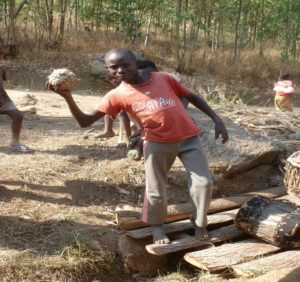
My informal poll among Rwandan Lutherans was they all liked the idea of being promoted so nicely on one of the world’s stages. It made everyone whom I spoke with in Rwanda feel very positive about their country. I know it did for me. It was rather coincidental that the first day of this trepid traveler’s trip to Rwanda, they would begin a tourism promotion, as it seemed, for my personal benefit. I won’t quite call it a sign from God but another indicator that God’s gracious goodness is always present even when some don’t necessarily act that way.
Missionary Philip Birner
Please pray for those working in fields that are ripe for harvest. Share their story, engage with future news and receive updates. Go to this link to learn more about our mission fields in Africa and how the Holy Spirit is working faith in people’s hearts https://wels.net/serving-others/missions/africa
